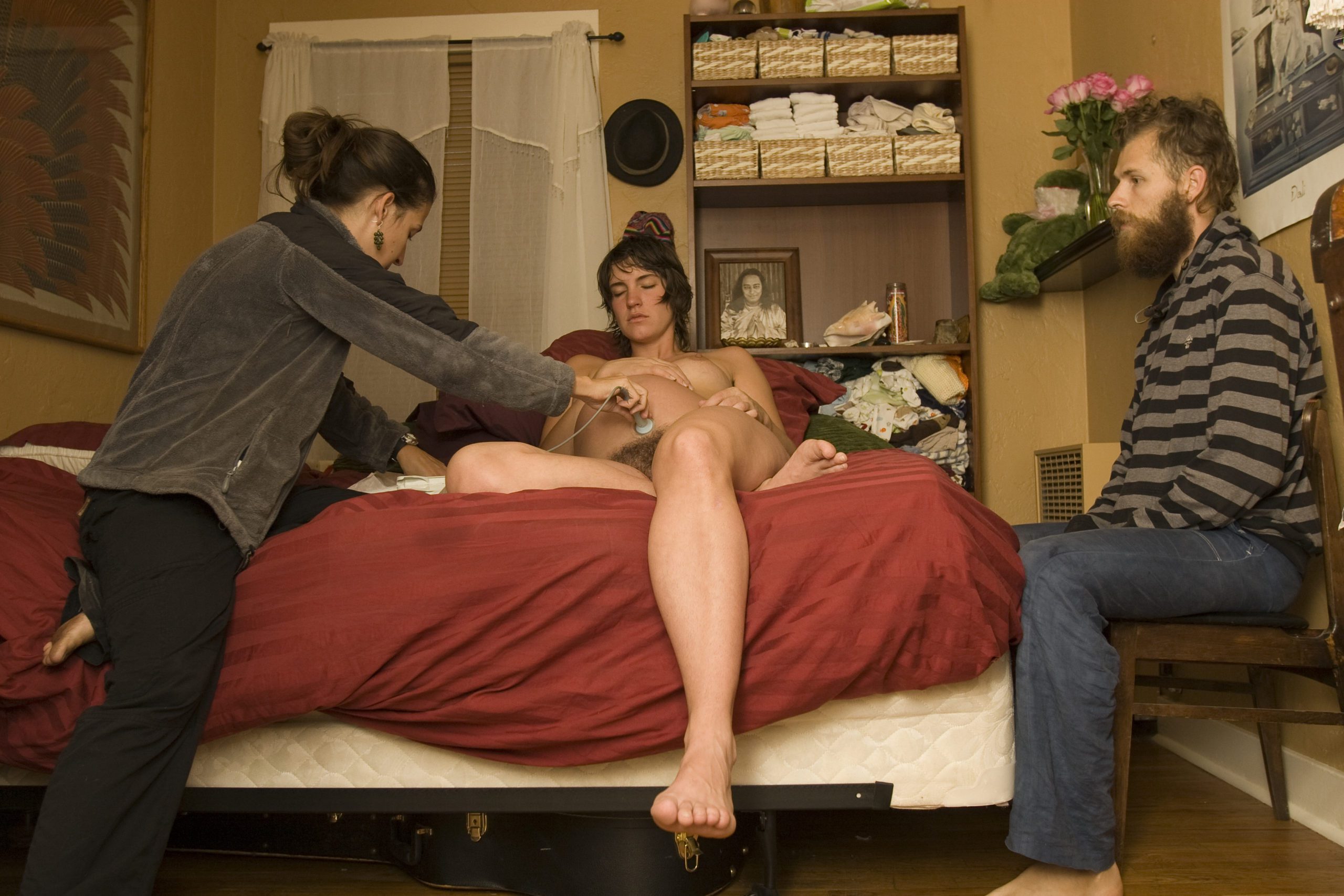(Let it be known that I have had 5 homebirths-the first, second and third being waterbirths. The last 2 have been intentional “land births”. I have enjoyed all of my births but would probably say that my body has enjoyed birthing on land over in water. I hope my own personal bias does not sway you too much; and I think my clients would agree that I continue to be supportive of waterbirth and respect a woman’s choice to choose how and where she births).
I love waterbirths. Some of my reasoning is purely sentimental. Most of my apprenticeship I was witness to not only the magic of birth, but the magic of birth underwater. It was mysterious, and beautiful, and hard to see a lot of the time. I loved seeing the mamas be able to change position so quickly and easily, and most of all I loved (and I still do) watching the new babe spiral out under the water before being brought earthside. There’s this glimpse into the baby’s in-utero world that you get to witness with waterbirth and it is completely surreal.
On a scientific level, there is also lots to love about waterbirth. When immersed for more than 20 minutes (with water level past belly and up to breasts), a woman’s body in labor will relax; her contractions will get more effective but theoretically less painful, her entire body will essentially be working less hard than it might on land.
The key, I have learned over the years, is largely the temperature of the water. For active labor and birth, research has shown that a lower (than we tend to use here in the US) temperature can be integral in creating these beneficial effects and avoiding the negative (like increased maternal temperature increasing heartrate of both mama and babe, increased metabolic rate in general of the mom stressing her body rather than relaxing it). The number tends to be in the high 80’s-low 90’s degrees Fahrenheit. Although I do believe no woman should have a water temperature forced on her against her will, I have seen this lower-temperature theory in action and believe it’s what most women will naturally request. How many times have you been at a birth (or experienced one yourself) where the woman hits that point in labor (either in the pool or not) and gets really hot? The fans in the room go on, she ask for ice or a cold washcloth. I don’t think this is an accident; and while she may not need to be cooled down excessively, a too-hot pool is only going to make it worse and is physiologically countering what her body needs.
Babies born in lower temperatures also seem to adapt to extrauterine life more readily (although not necessarily faster), both according to research and my own observational experience. There seems to be a bit more of a “wake up” effect when the baby emerges into the pool; creating what seem like ideal circumstances to soon begin air breathing. (On an anecdotal note, my first homebirthed babe was born into a too-hot pool. We’d never prepared a waterbirth pool before, babe was coming, midwife had not arrived, husband throwing ice into the pool-anyway, babe was born quite sleepy, not so alert, I bled more than any other birth..and to this day my son says when he gets really hot he gets really mad:)
I believe that the temperature aspect is important to consider; and if you think about women birthing in water centuries ago, they would have chosen cooler bodies of (natural) water even just by default.
On a different note, the best thing about waterbirth is that it creates the woman’s OWN space. That’s not an inconsequential thing to consider in this day and age of interfered with births, even with midwives at home. A woman in a birthing pool has physically introduced a boundary between her and everyone else, and sometimes this is the best thing she could do for herself. It avoids some of the unnecessary touching of babe as birth starts to occur; at the very least, it’s harder for attendants to be messing where they shouldn’t. In her own space, the woman can also rotate and move uninhibited by the weight of pregnancy. There is also some evidence to support that a woman is less likely to tear in the water because of counter-pressure (this may indeed be true but I also think it is because, in having her own space and keeping others away, she must use her own hands to birth her own baby, which is, in my opinion, the absolute best way to prevent tears).
In my mind there aren’t too many DISADVANTAGES of waterbirth, especially the use of water in labor. The main disadvantage I have found personally and with other women is sort of obvious; if the pool doesn’t feel comfortable and prevents a woman from engaging in the movement she needs to in order to birth a baby, then it’s not always a great tool. I’ve seen women sit immobilized in the water for a long time; when in the end their bodies needed to dance and shake their babies out! Water is a great tool when used for the right reasons, and relaxation seems to be the main one.
So, like anything in normal, unhindered birth…there are choices. And no right choice for every woman. If you are considering a waterbirth, examine your desires/wants and reasoning-watch lots of waterbirths, and watch land births. Consider your own personal situation, how drawn you feel to water or not, and go for it! Setting up a pool isn’t that complicated, and at worst, you don’t use it. And conversely, you may not be planning a waterbirth and end up birthing in your bathtub! Go with what feels right at the moment and choose a supportive birth team that only has your wants and needs on the to-do list. Happy birthing!
With my last 2 births, I have literally been downright uncomfortable in water. Although I enjoyed the weightlessness, I couldn’t get my legs wide enough, and I did not feel grounded enough. Although the gravity is obviously increased on land, I actually craved it. Feeling the head descend in water (as with my waterbirths) was less definable, more mushy-squooshy. I love the intensity of the head coming through my body when I am on land, and I feel (literally, with my own hands) that I am more in control of the process that way. Plus, I am not a water animal. When my baby’s head is crowning and out (my favorite moment), I want to feel it and every little detail-things feel different underwater. And best of all, at the moment of birth, I want to kiss and hug and smell this glorious one…without the goo having been washed off or diluted. I want to smell the amniotic fluid and rub in the vernix. For me, the water has subdued the bold colors of birth, and although the colors were still present and beautiful, it’s not my personal preference.
Credit to Cornelia Enning (and Anne Frye for noting Enning’s work in “Holistic Midwifery, Volume 2”) for her studies/teachings on waterbirth temperature.





I completely agree with you! Of my 4 homebirths, only one was a waterbirth. I had the temperature too warm, but was only in the pool for about 30 minutes total. I never felt “grounded”, like I could get my footing. It didn’t help that my midwife at the time had never attended a waterbirth. She expected it to go just like any land birth and wanted to see everything and bother with me and the baby. I, like you, am not a water person. Water has its place for some, but it just wasn’t for me.
I had to stand and walk my baby out. I never liked the idea of water birth, even as far back as a kid seeing it on TV once. I set up a pool just in case but couldn’t use it as I had to stand through each contraction. I love that you wrote this! I often feel like the odd one out in the birthy world as I’m a land birther. Still will probably have water available next time around (and maybe a better tub to see if that helps) but don’t foresee changing my mind. You bring up a good point on it creating a boundary- with all the trouble of overly hands on midwives, I wonder if that has inadvertently added to the popularity of water birth which ppl attribute almost exclusively to “benefits of the water”. My MW was in my face for pushing and I hated it, but many of her fans say she’s so hands off, yet most of her clients water birth- interesting…
Another very well written article! I enjoyed reading your reasons for prefering land birth. You did a great job explaining why someone might prefer one over another, which I think will help women planning homebirths to better decide which they might be drawn to. In life in general I am drawn to the water, and am therefore every bit a waterbirther. My water birthed babe (close to 11 hours of labor in water where I HATED getting out to pee!) has been swimming like a mermaid since before 3, and hubby likes to tell inquisitive people it’s because she was born in water 🙂 It will be interesting to see what I choose with this next one!
I so wish I would have read this before Monday. I had my first homebirth on Monday and it was incredible! But now I know my water was WAY TOO HOT! I was begging for ice. I wasn’t in the tub that long, my birth was pretty quick, but it was way too hot. I did love the water though. I loved being able to constantly move. I will definitely be doing another water birth, but at a much cooler temp! Thanks for the info!
HAHA, I hear ya! I was always a water laborer… but when it came time to push, I SCRAMBLED to get out of the water. I wanted my feet firmly on the ground and pushing down into Mother Earth. That said, I LOVE witnessing and assisting with water birth, it’s just not my cup of tea. 🙂
#birth #pregnancy I loved pushing in water. I spend the majority of my labor in water last time, and it was heavenly. But, I naturally gravitate to water whenever I do not feel good, am in pain, etc, so it was no surprise. Thanks for sharing your perspective. It’s definitely a personal preference.
I’m a midwife and not a fan of water birth–water labor yes, birth no. I like your reasons for craving what, I think is what we land mammals are desgined for, gravity, touch, smell. But I think you glossed over an important part and that is your son’s psychological reaction to the too hot water. What we don’t know is what it does to our babies psychologically to be physically prepared for land birth–going from water to air–and then having that preparation disrupted by being born back into water. Interesting part of this discussion I think.
Do you have information on if water slows labor if it is introduced before you’ve dilated beyond six centimeters? I know unassisted birthing is probably not about all of those little details, but I have heard that this is the case, and I think most laboring mothers would be interested to know if water has an effect on slowing labor rather than helping it along.